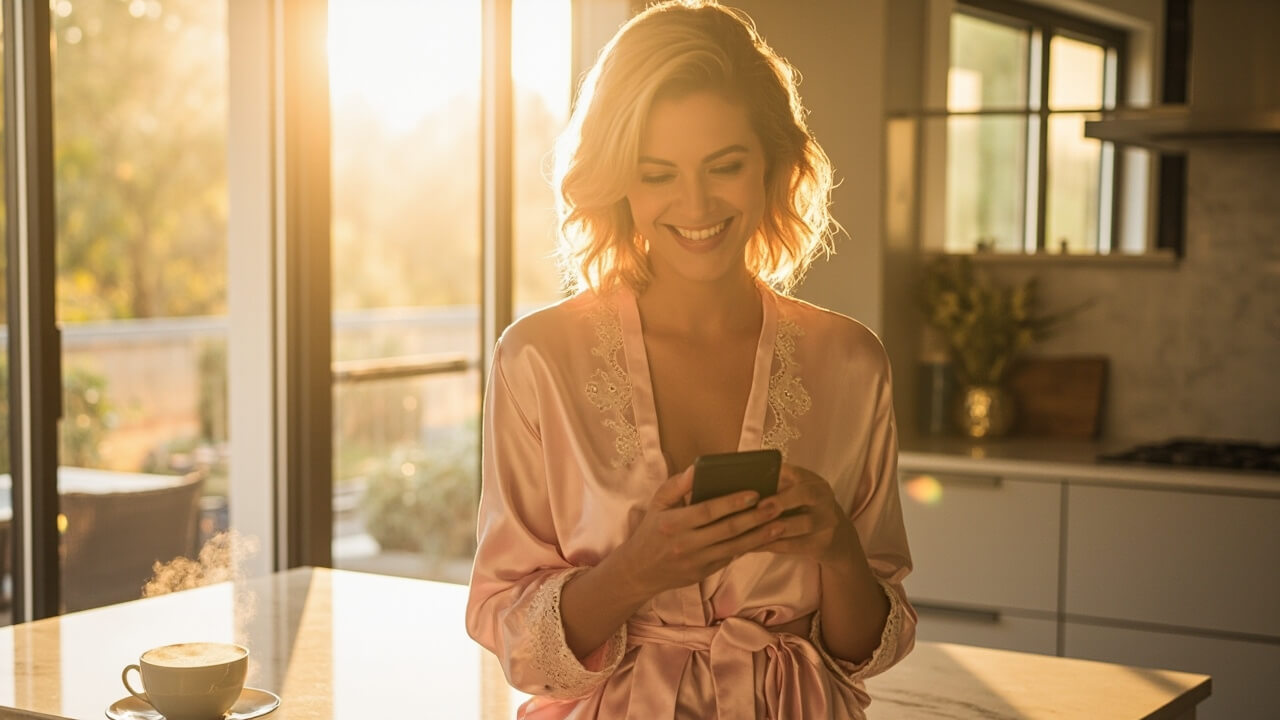If you’re over 50 and still think of your smartphone as “just for calls or photos,” you’re missing out on one of the most powerful tools for healthy aging and daily organization. In 2025, smartphones are more intuitive than ever—and with the right apps, they can help you track medications, manage appointments, stay active, and even sleep better.
This guide is packed with smartphone tips for seniors and the best apps for health, organization, and well-being. Whether you’re an iPhone fan or Android user, there’s something here to make your life easier, safer, and more connected.
Why Smartphones Are Essential for Seniors in 2025
Smartphones today are:
- Easier to navigate (larger text, voice controls, simple modes)
- Packed with health-tracking tools
- Great for staying in touch with family and doctors
- Helpful for memory support, safety, and wellness

Top Health Apps for Adults Over 50
1. Medisafe – Medication Reminders
Never miss a dose again. This easy-to-use app sends alerts when it’s time to take your meds, and even notifies a loved one if you forget.
- Free (with optional premium version)
- Tracks meds, dosages, and refill dates
- Supports multiple prescriptions
2. MyFitnessPal – Track Nutrition & Movement
Monitor your daily meals, water intake, and physical activity. Customize it for low-impact exercise goals or weight management in your 50s and 60s.
- Syncs with smartwatches and step counters
- Ideal for diabetes, heart health, or general fitness
3. Pillboxie (iOS) or Alarm & Pill Reminder (Android) – Simple Visual Reminders
Prefer a visual interface? These apps use icons and colors to help you remember what to take and when.
Best Organization & Life-Management Apps
4. Google Calendar or Apple Calendar – Stay on Schedule
Set reminders for doctor visits, social events, bill due dates, or travel plans. You can:
- Share calendars with family
- Set alerts for repeating tasks
- Add color coding for easier viewing
5. Evernote or Google Keep – Notes and Lists
Jot down ideas, shopping lists, to-dos, or questions for your doctor. You can:
- Use voice-to-text
- Add photos or scan documents
- Sync across devices
6. Magnifying Glass + Flashlight
Turn your phone into a handy magnifier for menus, medication bottles, or receipts. No more squinting in restaurants!
Staying Physically and Mentally Active
7. Fitbit or Apple Health (built-in apps)
Even if you don’t own a smartwatch, your smartphone can count steps, track sleep, and monitor your activity.
- Set daily movement goals
- Track heart rate (if device allows)
- Use trends to inform doctor visits
8. Headspace or Calm – Mindfulness and Sleep
Great for stress reduction and better sleep, these apps offer guided meditations, bedtime stories, and breathing exercises.
- Ideal for managing anxiety or winding down
- Gentle, senior-friendly voices and music

Safety & Connection Tools
9. Life360 – Family Locator and Emergency Sharing
Share your location with trusted contacts and receive alerts when loved ones arrive safely home. Ideal for seniors who live alone or travel solo.
10. Medical ID / Emergency SOS
Set up your health info on your lock screen. In an emergency, paramedics or bystanders can:
- See allergies, medical conditions, and contacts
- Call your emergency contact directly
- Access without needing your phone passcode
iPhone: Use Health > Medical ID
Android: Use Safety & Emergency in Settings
Accessibility Features You Should Be Using
Your phone already comes with built-in tools to make life easier:
- Voice control: Dictate texts, search the web, or set reminders hands-free
- Larger text & bold fonts: Go to Display Settings
- Screen readers & magnifiers: For vision assistance
- Hearing aid pairing: Connect Bluetooth hearing aids directly
Need help setting these up? Ask a tech-savvy friend or visit your local senior center or phone carrier store—they often offer free tech support sessions.

FAQs
Do I need a smartwatch to use health apps?
No. Many apps work with just your phone’s motion sensors and camera. A smartwatch adds more data, but it’s not required.
Is it safe to store health info on my phone?
Yes—as long as you lock your phone and use secure apps. You can also back up sensitive info to iCloud or Google Drive for peace of mind.
What’s the easiest phone for seniors to use in 2025?
- iPhone SE (affordable, intuitive, voice-friendly)
- Samsung Galaxy A-series (great for Android users)
- Jitterbug Smart4 (designed specifically for older adults)
Final Thought: Your Smartphone Is More Than a Gadget—It’s a Wellness Partner
You don’t have to be a tech expert to make your smartphone work for you. With the right tools, it becomes a daily companion for health, connection, and peace of mind.
Start simple. Pick one or two apps, explore accessibility settings, and build from there. A healthier, more organized life might just be a tap—or voice command—away.
